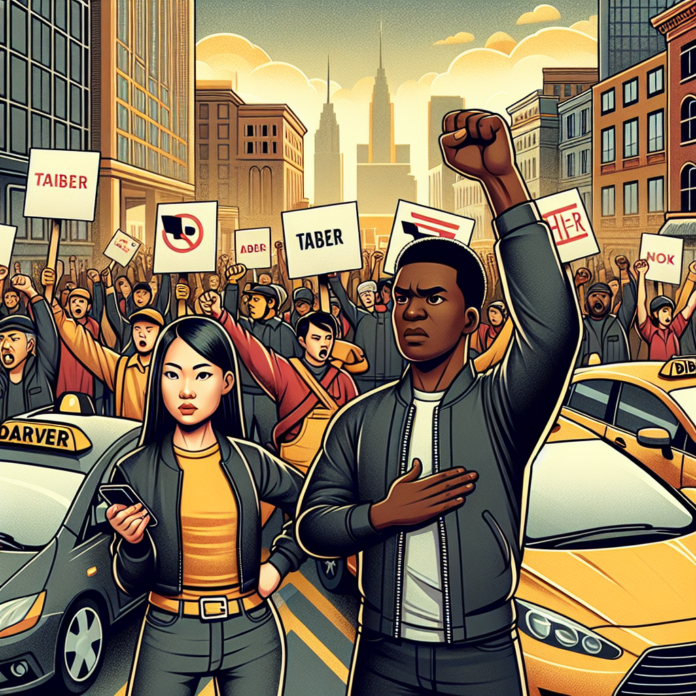The Rising Tide of Gig Worker Dissatisfaction
As the gig economy continues to flourish, the voices of discontent among the workers powering these services grow louder. In a significant show of unity and shared purpose, Uber and Lyft drivers in several U.S. cities orchestrated a strike. The central demand is a chorus that has been reverberating across the country: fair pay. The drivers contend that despite being the backbone of the rideshare industry, their earnings have not matched the rising cost of living, nor have they proportionately shared in the companies’ successes.
A National Call to Action
The call for a strike emerged as a grassroots movement through social media and driver advocacy groups. The message was clear: today’s labor action aimed at drawing attention to their plight and urging both companies to reevaluate their payment structures. Drivers took to the streets, switched off their apps, and rallied with signs and slogans. Their demands include increased trip payments, a transparent and fair tip system, and an end to the sudden account deactivations that leave drivers without a source of income without a clear recourse.
Ripple Effects of the Strike
The impact of the strike was immediately felt across the transportation network, with longer wait times and higher prices reported by users in some cities. This industrial action brings to the forefront not just the issues faced by the drivers, but also underscores the dependency of urban populations on gig economy services. Passengers who rely on Uber and Lyft for their daily commutes were confronted with the human cost of convenient, on-demand travel.
The Response from Uber and Lyft
In anticipation of the strike, both Uber and Lyft released statements emphasizing their commitment to drivers’ well-being and their ongoing efforts to improve earnings and work conditions. However, the drivers argue that these overtures have not translated into meaningful change on the ground. They remain resolute in seeking dialogue and actionable commitments from both rideshare giants.
The Broader Implications
The strike by Uber and Lyft drivers is not isolated event but part of a larger narrative of gig economy workers striving for recognition and fair compensation. The outcries for better treatment are echoing in various sectors where independent contractors are becoming more vocal. The outcome of this strike could set a precedent for the gig industry, potentially sparking similar movements worldwide as workers in this sector seek to redefine their terms of employment.
Moving Forward: What’s Next for Rideshare Drivers?
As the striking drivers await reaction and negotiation from Uber and Lyft, they, along with observers, recognize that the ride-hailing business model is at a crossroads. Will these companies restructure their pay and policies to ensure a sustainable workforce, or will there be an escalation in the ongoing battle for workers’ rights? The drivers have made their voices heard; the world now waits to see how the industry responds to this moment of reckoning for the future of gig work.




 AGF-B.CO
AGF-B.CO